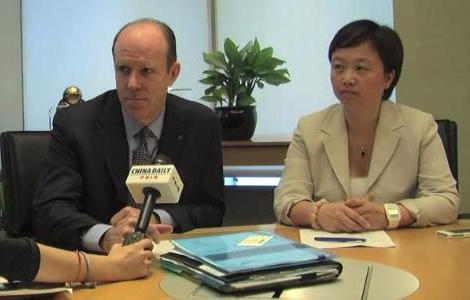Uber hits the accelerator
Updated: 2014-10-10 11:52
By Zhou Mo in Hong Kong(China Daily USA)
|
||||||||
Crouching for shelter under a downpour, and totally exhausted after toiling for the whole day, one would probably envy the endless stream of BMWs and Audis passing by, and wish they would stop at your feet and take you home.
But, this would not be mere fantasy with the smartphone Uber at your fingertips.
"I use the service quite often. It's especially helpful when I'm eager to get home late at night, as it ensures I can get into a car within minutes," said Toey, who works at a media company in Sheung Wan.
Uber is a San Francisco-based transportation network enterprise that launched the mobile application in 2009 linking commuters with drivers of vehicles for hire or ridesharing - similar to the global Easy Taxi mobile taxi app introduced in Hong Kong in 2003, which currently has more than 500 drivers operating across the city.
All a passenger needs to do is to make a request through the app for a ride, and a fancy car - a Cadillac, Lincoln Intercontinental, Jaguar or Mercedes-Benz - would stop right in front of you in a matter of minutes to take you to your destination. Lounging in a spacious Mercedes-Benz, indulging in Korean drama with free and unlimited Wifi, the extraordinary and considerate VIP service is something you can never get from a rushed taxi journey.
And, arriving at your destination, you just pay with your credit card, absolving yourself of the hassle of panicking for or receiving a bundle of small change.
"High-heeled businessmen in Central or Tsim Sha Tsui now have an alternative option to travel other than driving or hailing a taxi," says Zhang Feng, a fellow at the University of Hong Kong's Institute of Transport Studies. "Using the Uber service not only helps you avoid the hazard of driving in a congested city, or scouring like mad for a parking space, it also stamps a sort of social status on a customer, all of which cannot be offered by the traditional taxi."
Uber has won popularity worldwide four years on, enjoying exponential growth around the globe. Last year, the service expanded from covering 25 cities in 12 countries to almost 70 cities in 25 nations - adding one city per week on average - and currently embraces more than 160 cities. In June this year, Uber Inc raised $1.2 billion in a financing exercise led by Fidelity Investments, pushing it to the front of a pack of startups with a valuation of $18.2 billion.
However, it was not until August 2013 that Uber began its first "trip" in China, launching services in Shanghai. With a minimum fee of 30 yuan ($4.88), commuters can enjoy the spaciousness of a Buick GL8 or going on a family outing with customized UberBLACK or UberXL services.
"Uber offers customers a pleasant riding experience," Internet user "Mr K" wrote on Zhihu. "Though Uber's fee is much higher than that for an ordinary taxi, the comfort and speed it provides are something taxis can never match," he said.
Optimism about Uber's service, nevertheless, is not shared by all people, with some voicing concern that public safety might be at risk if Uber deploys private vehicles in the market by recruiting them as service suppliers. The taxi application is currently cooperating with private car owners in some Western countries.
According to a notice issued by the Beijing Municipal Commission of Transport on August 12 this year, private cars are strictly forbidden from participating in the car-rental business. At present, all vehicles operating on the Uber platform in Beijing are from licensed car-rental firms.
"The challenge facing Uber is how to legally expand its supply scale without recruiting private cars as its service suppliers," Zhang pointed out.
Uber has also made its footprint in other major mainland cities, including Shenzhen and Guangzhou. The company made its Hong Kong debut in mid-August, launching its taxi app, UberTaxi, making the SAR the third city in the Asia-Pacific region after Sydney and Tokyo, and the only city in China, to offer such a service.
"Hong Kong is a city that really values choice, convenience and time. People would rather just push a button and call a car waiting outside than go outside and spend a lot of time trying to find a cab," said Sam Gellman, Uber's general manager for Hong Kong. "With Uber, you just push a button and you have your own private driver."
The advent of UberTaxi heralds the start of a stiff contest among Uber, Easy Taxi and GrabTaxi. As one of the largest taxi-calling applications in the world, Easy Taxi currently operates in more than 120 cities in 27 countries, while GrabTaxi is rapidly expanding in Southeast Asia.
However, experts say it's too early, at this stage, to project who would emerge as the ultimate winner with the biggest pie. "In a couple of years, they will settle down with their own market share. It's still too early to tell, and it would depend largely on their investment scale," Zhang said.
Contact the writer at sally@chinadailyhk.com
zhoumo@chinadaily.com.cn
(China Daily USA 10/10/2014 page7)
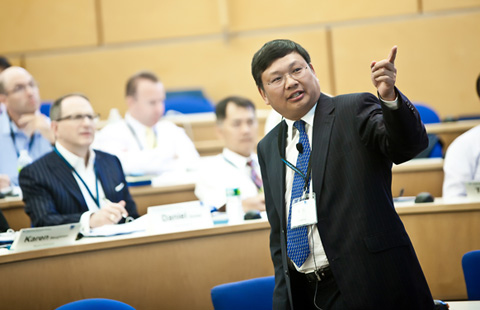
 Chinese companies going global in expansion
Chinese companies going global in expansion
 Builder flexes muscle in US
Builder flexes muscle in US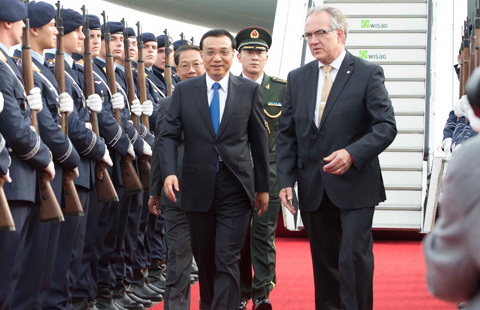
 Li arrives in Germany, first leg of Europe trip
Li arrives in Germany, first leg of Europe trip
 Mt Sinabung erupts again in Indonesia
Mt Sinabung erupts again in Indonesia
 Silent HK majority urged to support government
Silent HK majority urged to support government
 Lunar eclipse in Asia and the Americas
Lunar eclipse in Asia and the Americas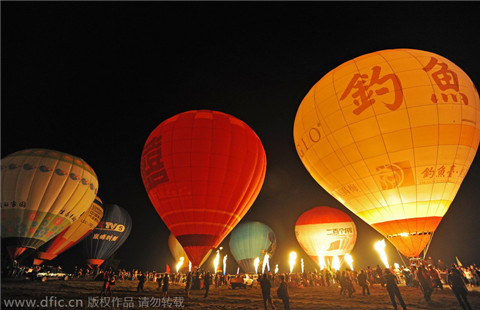
 Hot air balloon challenge in Wuhan
Hot air balloon challenge in Wuhan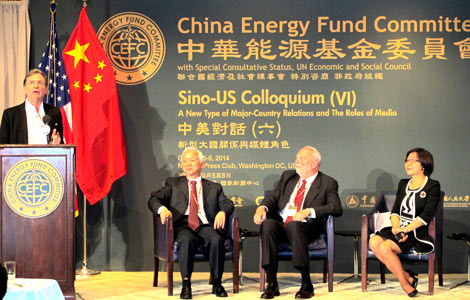
 Cultural bridge key for China, US
Cultural bridge key for China, US
Most Viewed
Editor's Picks

|

|

|

|

|

|
Today's Top News
Chinese companies going global in expansion
Waldorf Astoria sale to spur more purchases by Chinese
Premier pushes innovation on German visit
Beijing to keep the lid on air pollution for APEC
Li arrives in Germany, first leg of Europe trip
China's economy surpasses US
IMF: Shadow banking filling gaps
China's status prominent at 'Big Four' firm Ernst & Young
US Weekly

|

|

